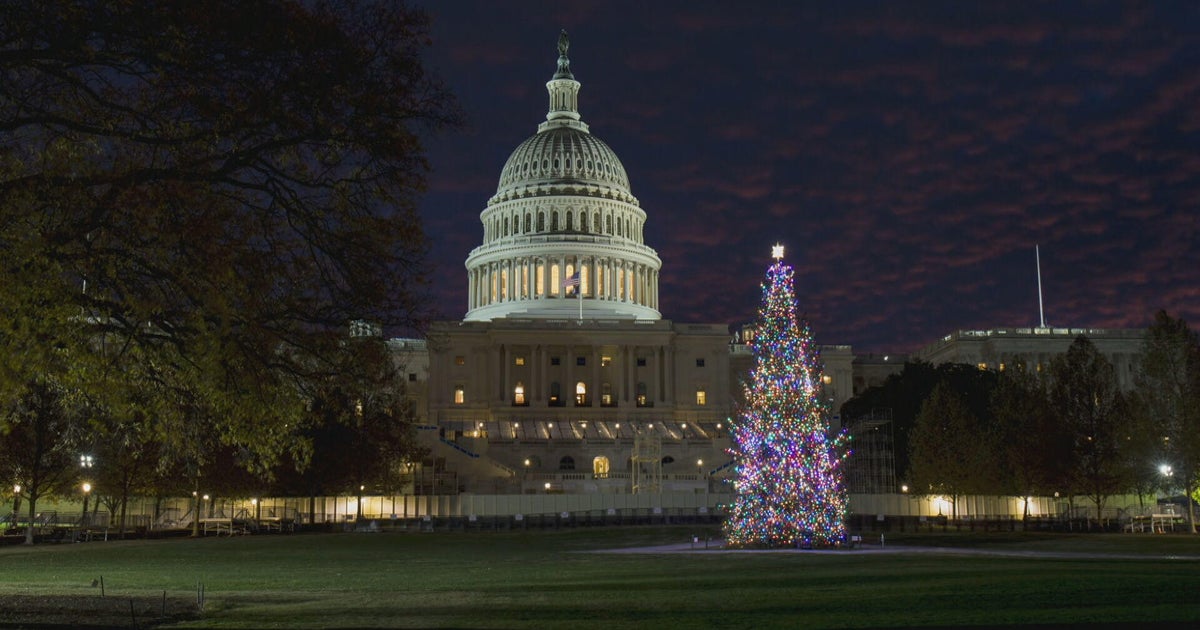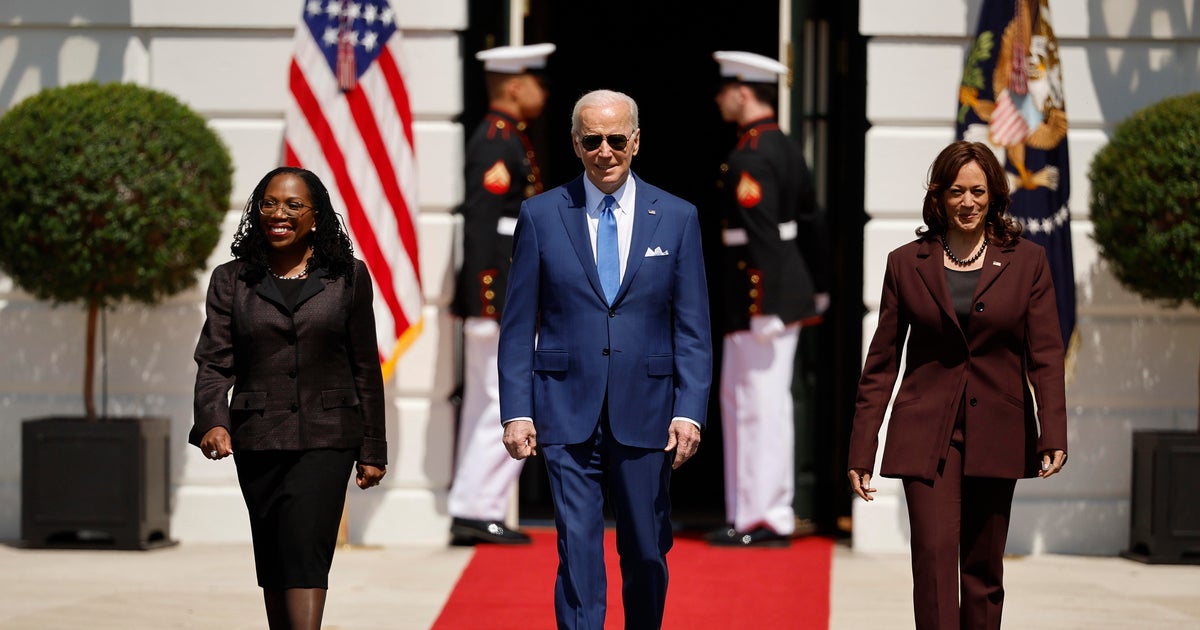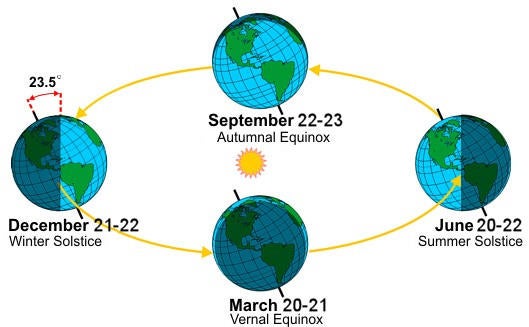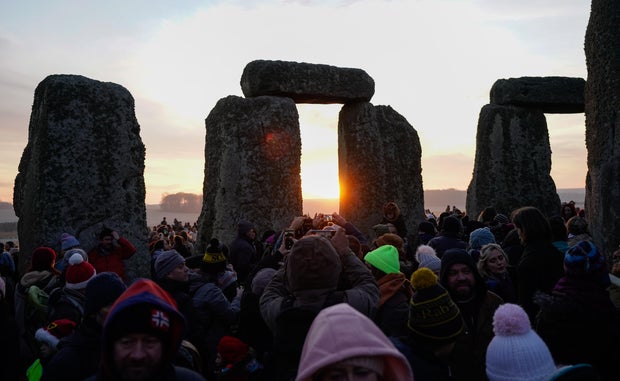CBS News
Russia responds to Kamala Harris-Donald Trump debate: “Leave our president alone”

Russian President Vladimir Putin’s chief spokesperson Dmitry Peskov complained Wednesday that Vice President Kamala Harris and former President Donald Trump had referred too often to the Russian autocrat during their first head-to-head debate as candidates in the 2024 U.S. presidential election.
“The name Putin is used, let’s say, as one of the tools in the domestic political struggle of the United States,” Peskov told reporters in Moscow, adding: “We really, really don’t like this and we still hope they will leave our president alone.”
He struck a seemingly neutral tone on the American political duel despite his boss recently offering a very tongue-in-cheek endorsement of Harris, saying the position was “quite clear: The U.S. as a whole, no matter which party the candidates are from, maintains a negative attitude, an unfriendly attitude towards our country.”
Trump, however, has for years made comments admiring Putin, including calling his tactics in the 2022 invasion of Ukraine “genius” and “very savvy.” The former U.S. leader has expressed no such warmth for Ukrainian President Volodymyr Zelenskyy, calling him a “salesman” for his appeals to allies for weapons.
The Biden administration, along with its European allies and Zelenskyy himself, say a victory in Ukraine would embolden Putin to move against other Western-allied democracies in Europe. President Biden and his top officials were key players in rallying international support for Ukraine and sanctions against Russia since even before Russian forces rolled into Ukraine. The U.S. spurred allies into action by pointing to declassified intelligence showing Russian preparations for the invasion.
Trump won’t say if he wants Ukraine to win war with Russia
Trump spoke heatedly in Tuesday night’s presidential debate about wanting Russia’s war in Ukraine to be over — but twice refused to directly answer a question about whether he wanted Ukraine, which has received immense financial and military support from the U.S. and its NATO allies, to win.
It’s “a very simple question. Do you want Ukraine to win this war?” moderator David Muir of ABC News asked Trump in Tuesday night’s debate.
“I want the war to stop,” Trump responded. “I want to save lives.”
Asked to clarify whether he believed it was in the best interest of the United States for Ukraine to win the war with Russia, Trump responded: “I think it’s the U.S. best interest to get this war finished and just get it done.”
Ukraine is dependent on U.S. aid to keep up its fight against Russian forces, and it would have grave difficulty withstanding their attacks if Washington were to pull its support.
Trump also falsely claimed Tuesday that the war had killed “millions” of people since Russia launched its full-scale invasion on Feb. 24, 2022, while the United Nations says 11,700 civilian deaths have been verified. Neither the Russian nor Ukrainian governments provide full casualty tallies for their military forces.
His comments are likely to heighten concern among Ukraine and its supporters that his return to the White House could put Kyiv under pressure to sign a peace deal with its stronger neighbor that would force it to give up land seized by Putin’s forces — something Zelenskyy has firmly rejected so far.
Harris tells Trump Putin is a “dictator who would eat you for lunch”
Trump has claimed repeatedly that he would get a peace deal done between Ukraine and Russia within a day if he is elected, although he has never said how he’d accomplish the feat, beyond getting Putin and Zelenskyy together to talk. The fear of Ukraine’s supporters is that the kind of deal Trump is talking about would amount to the country’s democratic government capitulating significant territory and sovereignty to Russia.
Putin earlier this year insisted that Ukraine give up vast amounts of its eastern Donbas region, much of which is already occupied by Russian forces, and shun NATO membership as preconditions to even starting negotiations. The NATO alliance’s members, including the U.S., said bluntly in a joint statement in July that Ukraine was on an “irreversible path” to membership.
“The reason that Donald Trump says that this war would be over within 24 hours is because he would just give it up,” Harris said during the debate. She accused Trump of being in “what you think is a friendship with … a dictator who would eat you for lunch.”
Just days before the invasion in 2022, Mr. Biden sent Harris to the annual Munich Security Conference in Germany, a high-profile mission to consolidate support for Ukraine among European and NATO leaders. Harris met on the sidelines with Zelenskyy.
Trump, during the debate, linked the timing of Harris’ trip to Europe to Putin’s sending troops into Ukraine days later.
“They sent her in to negotiate with Zelenskyy and Putin. And she did. And the war started three days later,” he said.
But the U.S. government said the Russian troops massing on Ukraine’s border and intelligence assessments already pointed to an imminent invasion. Putin was not at the security conference in Germany, and Harris didn’t meet with him.
CBS News
Social Security Fairness Act passes U.S. Senate
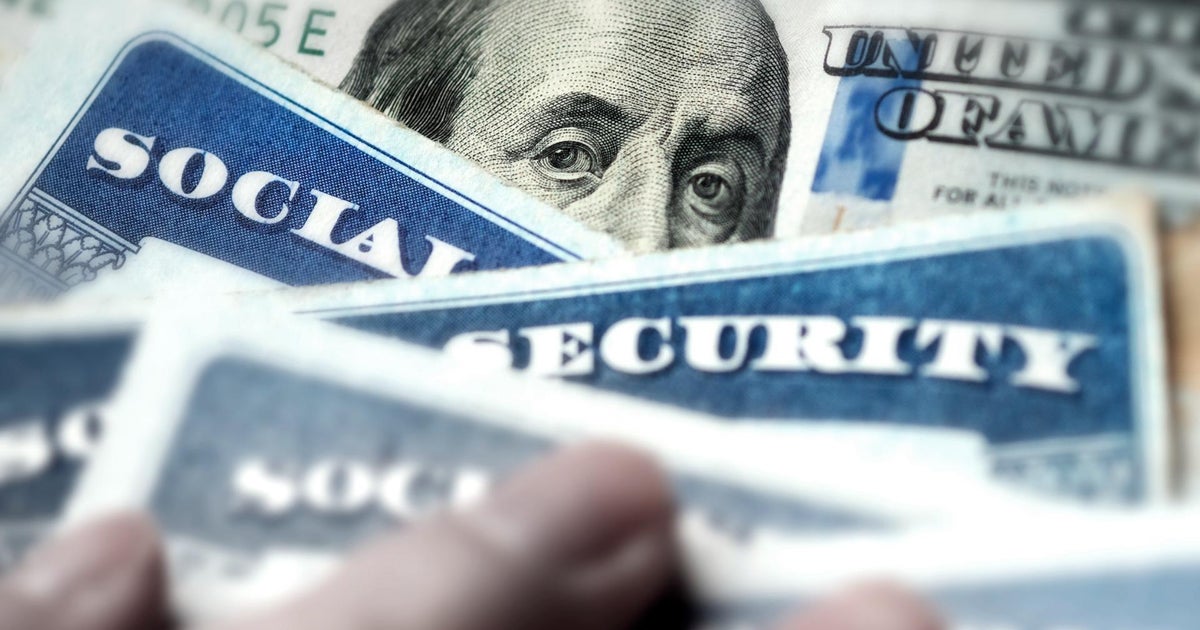
Legislation to expand Social Security benefits to millions of Americans passed the U.S. Senate early Saturday and is now headed to the desk of President Joe Biden, who is expected to sign the measure into law.
Senators voted 76-20 for the Social Security Fairness Act, which would eliminate two federal policies that prevent nearly 3 million people, including police officers, firefighters, postal workers, teachers and others with a public pension, from collecting their full Social Security benefits. The legislation has been decades in the making, as the Senate held its first hearings into the policies in 2003.
“The Senate finally corrects a 50-year mistake,” proclaimed Senate Majority Leader Chuck Schumer, a Democrat from New York, after senators approved the legislation at 12:15 a.m. Saturday.
The bill’s passage is “a monumental victory for millions of public service workers who have been denied the full benefits they’ve rightfully earned,” said Shannon Benton, executive director for the Senior Citizens League, which advocates for retirees and which has long pushed for the expansion of Social Security benefits. “This legislation finally restores fairness to the system and ensures the hard work of teachers, first responders and countless public employees is truly recognized.”
The vote came down to the wire, as the Senate looked to wrap up its current session. Senators rejected four amendments and a budgetary point of order late Friday night that would have derailed the measure, given the small window of time left to pass it.
Vice President-elect JD Vance of Ohio was among the 24 Republican senators to join 49 Democrats to advance the measure in an initial procedural vote that took place Wednesday.
“Social Security is a bedrock of our middle class. You pay into it for 40 quarters, you earned it, it should be there when you retire,” Ohio Senator Sherrod Brown, a Democrat who lost his seat in the November election, told the chamber ahead of Wednesday’s vote. “All these workers are asking for is for what they earned.”
What is the Social Security Fairness Act?
The Social Security Fairness Act would repeal two federal policies — the Windfall Elimination Provision (WEP) and the Government Pension Offset (GPO) — that reduce Social Security payments to nearly 3 million retirees.
That includes those who also collect pensions from state and federal jobs that aren’t covered by Social Security, including teachers, police officers and U.S. postal workers. The bill would also end a second provision that reduces Social Security benefits for those workers’ surviving spouses and family members. The WEP impacts about 2 million Social Security beneficiaries and the GPO nearly 800,000 retirees.
The measure, which passed the House in November, had 62 cosponsors when it was introduced in the Senate last year. Yet the bill’s bipartisan support eroded in recent days, with some Republican lawmakers voicing doubts due to its cost. According to the Congressional Budget Office, the proposed legislation would add a projected $195 billion to federal deficits over a decade.
Without Senate approval, the bill’s fate would have ended with the current session of Congress and would have needed to be re-introduced in the next Congress.
CBS News
12/20: CBS Evening News – CBS News

Watch CBS News
Be the first to know
Get browser notifications for breaking news, live events, and exclusive reporting.
CBS News
Saturday is the winter solstice and 2024’s shortest day. Here’s what to know about the official start of winter.

The 2024 winter solstice, the shortest day of the year, happens on Saturday, Dec. 21, in the Northern Hemisphere. The celestial event signifies the first day of winter, astronomically.
What is the winter solstice?
The winter solstice is the day each year that has the shortest period of daylight between sunrise and sunset, and therefore the longest night. It happens when the sun is directly above the Tropic of Capricorn, a line of latitude that circles the globe south of the equator, the National Weather Service explains.
The farther north you are, the shorter the day will be, and in the Arctic Circle, the sun won’t rise at all.
How is the day of the winter solstice determined?
The winter solstice occurs because of the Earth’s tilt as it rotates around the sun.
When the Northern Hemisphere tilts away from the sun, the nights last longer. The longest night happens on the solstice because the hemisphere is in its furthest position from the sun. That occurs each year on Dec. 21 or 22.
This year, it falls on Dec. 21 at 4:21 a.m ET, to be precise.
On the summer solstice, when the northern tilt is closest to the sun, we have the longest day, usually June 20 or 21.
National Weather Service
The solstices are not always exactly on the 21st every year because the earth’s rotation around the sun is 365.25 days, instead of 365 even.
Will days start getting longer after the winter solstice?
Yes. Each day after the solstice, we get one minute more of sunlight. It doesn’t sound like much, but after just two months, or around 60 days, we’ll be seeing about an hour more of sunlight.
When will winter officially be over in 2025?
The meteorological winter ends on March 20, 2025. Then, spring will last until June 20, when the summer solstice arrives.
How is the winter solstice celebrated around the world?
Nations and cultures around the world have celebrated the solstice since ancient times with varying rituals and traditions. The influence of those solstice traditions can still be seen in our celebrations of holidays like Christmas and Hanukkah, Britannica notes.
The ancient Roman Saturnalia festival celebrated the end of the planting season and has close ties with modern-day Christmas. It honored Saturn, the god of harvest and farming. The multiple-day affair had lots of food, games and celebrations. Presents were given to children and the poor, and slaves were allowed to stop working.
Gatherings are held every year at Stonehenge, a monumental circle of massive stones in England that dates back about 5,000 years. The origins of Stonehenge are shrouded in mystery, but it was built to align with the sun on solstice days.
Andrew Matthews/PA Images via Getty Images
The Hopi, a Native American tribe in the northern Arizona area, celebrate the winter solstice with dancing, purification and sometimes gift-giving. A sacred ritual known as the Soyal Ceremony marks the annual milestone.
In Peru, people honor the return of the sun god on the winter solstice. The ancient tradition would be to hold sacrificial ceremonies, but today, people hold mock sacrifices to celebrate. Because Peru is in the Southern Hemisphere, their winter solstice happens in June, when the Northern Hemisphere is marking its summer solstice.
Scandinavia celebrates St. Lucia’s Day, a festival of lights.
The “arrival of winter,” or Dong Zhi, is a Chinese festival where family gathers to celebrate the year so far. Traditional foods include tang yuan, sweet rice balls with a black sesame filling. It’s believed to have its origins in post-harvest celebrations.
Researchers stationed in in Antarctica even have their own traditions, which may include an icy plunge into the polar waters. They celebrate “midwinter” with festive meals, movies and sometimes homemade gifts.


